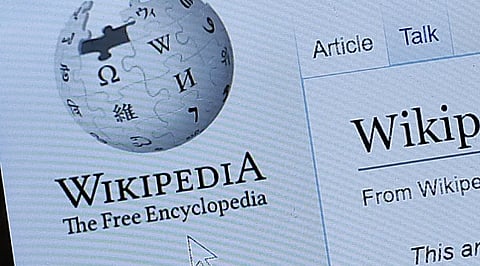

It’s become routine for crypto startups to claim that they can fix X or disrupt Y by putting it on blockchain rails. But in the case of Wikipedia, few would dispute that the X in question is badly broken. With accusations of censorship, bias, and misinformation running rampant, Wikipedia is a hot mess. As for whether web3 can fix it, the short answer is “probably.”
The longer answer is that it depends upon a number of factors, both technical and human. In the case of the former, Xandeum, the Solana scaling layer proposing a fresh assault on Wikipedia’s hegemony, believes it’s found the solution. It also believes it’s worked out how to fix the human flaws that have been inherent to Wikipedia’s downfall through clever use of governance aka incentive alignment. But more on that shortly.
First, let’s get up to speed on what Wikipedia has done right – and where it’s gone badly wrong.
In our globally connected society, the free flow of information is the bedrock of democracy and social progress. For many, Wikipedia is the epitome of open knowledge sharing: an easily accessible platform with millions of articles, covering everything from quantum physics to the history of knitting. Yet beneath its wealth of content lies a controversial undercurrent: claims of editorial bias, suppression of views, and potential censorship.
While Wikipedia champions the slogan “the free encyclopedia that anyone can edit,” the reality is that the vast majority of this thankless work is done by a small number of editors – some of whom have their own axe to grind and agenda to push.
Launched in 2001 by Jimmy Wales and Larry Sanger, Wikipedia was built on the principles of open collaboration and free access to information. Today, the platform is available in over 300 languages and contains millions of articles contributed by volunteer editors from around the world. However, the impartiality of the more inflammatory articles – politics; transgender issues; Russia; Islam; child grooming gangs to name but a few – is a matter of fierce debate.
Wikipedia articles of political figures are commonly accused of harboring hidden slants due to certain administrators and editors skewing content toward favored narratives. For instance, controversial topics, be it Donald Trump’s biography or the BLM movement, often see a flurry of edits and reverts, creating a battlefield for ideological “edit wars.”
Wikipedia has censored or locked content related to COVID-19 and U.S. election data, demonstrating how hot-button issues can quickly lead to restricted editing privileges. When rapidly evolving topics surface, the platform’s current structure sometimes allows groups of gatekeepers to restrict who can contribute, effectively limiting transparency.
Wikipedia’s governance hinges on a network of volunteer editors and administrators who enforce guidelines. While this generally works, the most active editors often become the de facto arbiters of content. This can create an echo chamber when these editors share similar views. These recurring concerns don’t always mean that Wikipedia as a whole fails – it remains an invaluable resource. But it does highlight an enduring tension: how do we ensure that our collective knowledge remains neutral and resistant to censorship?
info.wiki has been proposed as a community-driven knowledge repository that’s fully decentralized. It uses Xandeum’s storage layer to handle massive data sets (like Wikipedia’s 250 GB) while anchoring editorial updates and governance decisions on Solana. Over time, info.wiki will publish new content under its own license, preserving proper attribution to Wikipedia’s original articles.
Storing Wikipedia’s text and revision history would be expensive on conventional blockchains, which aren’t equipped for this amount of data handling. Xandeum’s high-volume decentralized storage, which includes an onchain verifiability layer, solves this. By offloading the bulk of the data onto Xandeum, info.wiki avoids the prohibitive costs that come with onchain data storage.
According to a green paper Xandeum has published detailing the proposal, every edit will be tracked via a Merkle-based versioning structure, making any alteration easily traceable. Periodic anchors on Solana provide irrefutable proof of when and how edits occurred ensuring no single party can secretly revise history.
The final piece of the puzzle – community collaboration – will be implemented through a Community Wiki Token, which editors and contributors earn. Proposals regarding disputes, editorial guidelines, or new features are voted on by token-holders, ensuring that changes reflect the will of the broader community. All of this is still months away, with the site not on course to launch until mid-2025. But at the very least, its development has given web3 users – as well as proponents of open knowledge – something to think about.
Imagine a massive library where anyone can read or donate a new book. Wikipedia today functions like this library but is heavily dependent on a small group of librarians who enforce the rules and hold the keys to what goes on the shelves. When controversy arises, these librarians decide whether a book gets pulled or locked away.
info.wiki promises to keep the library open and fully stocked – regardless of what individual librarians have to say on the matter. Every community member who participates owns a stake, and decisions on shelving, rearranging, or editing books are verified on a public ledger. It essentially becomes a “self-organizing library,” resistant to unilateral censorship or hidden manipulation. That’s the bull case for building a decentralized Wikipedia and there’s a growing consensus that it’s an idea whose time has come.
Join our WhatsApp Channel to get the latest news, exclusives and videos on WhatsApp
_____________
Disclaimer: Analytics Insight does not provide financial advice or guidance on cryptocurrencies and stocks. Also note that the cryptocurrencies mentioned/listed on the website could potentially be scams, i.e. designed to induce you to invest financial resources that may be lost forever and not be recoverable once investments are made. This article is provided for informational purposes and does not constitute investment advice. You are responsible for conducting your own research (DYOR) before making any investments. Read more about the financial risks involved here.
